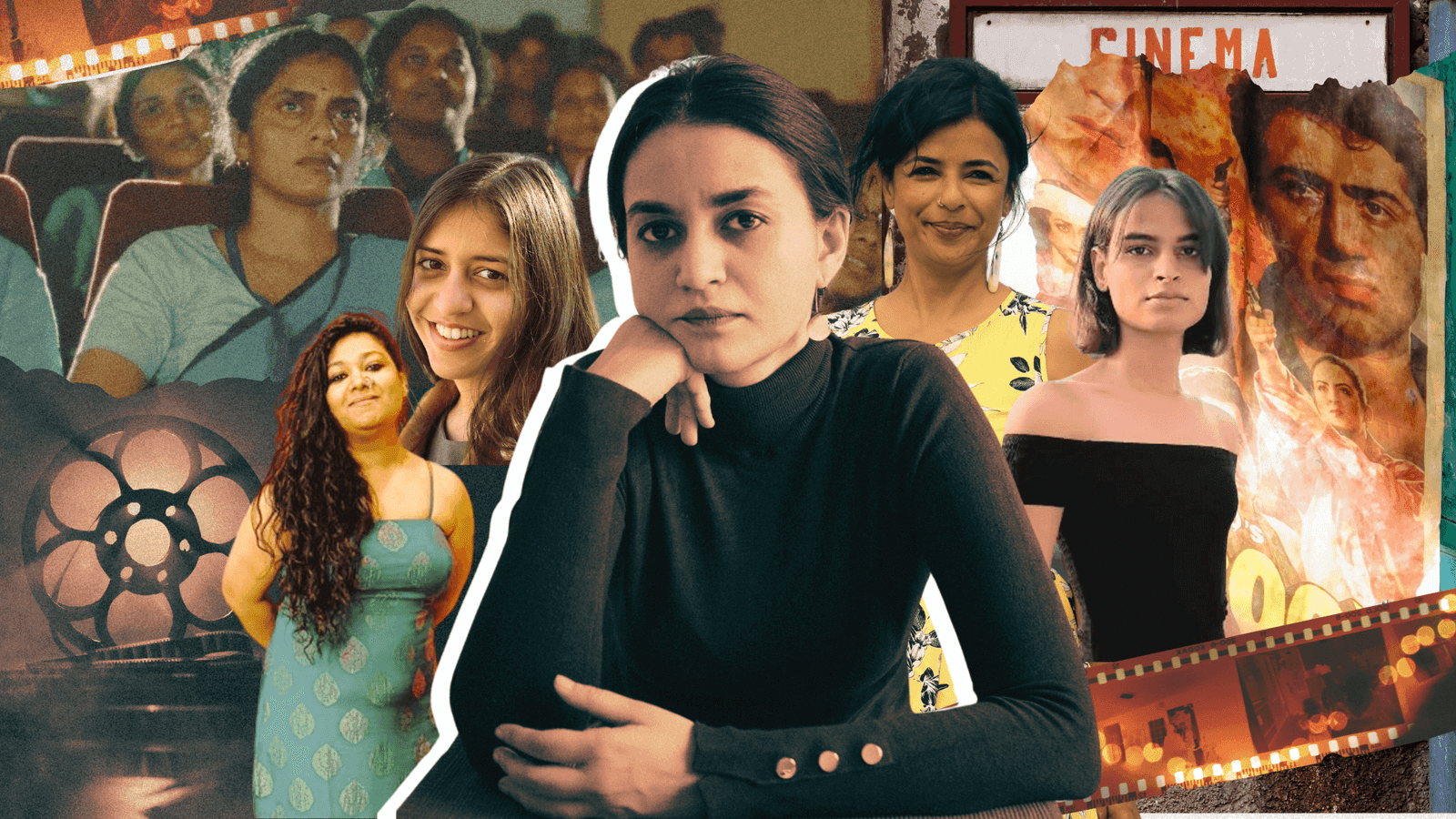Ever since the awards season kicked off, I’ve been reflecting on the cinematic highlights from the past year and the inspiring changes that have begun to unfold within the film industry. Unlike previous years, 2024 felt more personal – possibly because for the first time, I saw stories I could relate to on the big screen, told by women who share my cultural heritage.
Women Indian directors truly made waves – not only with trailblazing first-time achievements at international film festivals but, more importantly, by telling stories that haven’t been told in this way before. Payal Kapadia made history as the first Indian director nominated for Best Director (Motion Picture) at the 82nd Golden Globe Awards for her feature film All We Imagine As Light. She also became the first Indian director to win a Grand Prix at the Cannes Film Festival.

So, what does this international recognition mean for the future of film, especially since – despite the achievements of Payal and others – a South Asian director is still yet to be nominated for Best Director at the Oscars? “Last year demonstrated that when women are given the creative reins, Indian cinema flourishes,” says a supervising producer at a prominent production company in Mumbai. “The commercial and critical success of female Indian filmmakers will hopefully encourage studios and producers to invest in more diverse talent overall, leading to a richer and more globally competitive Indian film industry.”
Payal’s film journey began at her boarding school’s film club, where she was introduced to experimental filmmakers and auteurs such as Satyajit Ray and Ritwik Ghatak. This early exposure transformed her view of film, making her see it as “something to explore deeply”, she told Grazia India. She later studied film direction at the Film and Television Institute of India (FTII) and became actively involved in student protests against the appointment of a new chairman with strong ties to the nationalist Bharatiya Janata Party (BJP). Her involvement led to her arrest and subsequent suspension from the university, though she was later readmitted. But it’s these formative experiences that profoundly shaped her as a filmmaker, inspiring her to create work that dares to speak out.

Despite its widespread acclaim, All We Imagine As Light has humble origins. What started as a film school project evolved over a decade into a powerful story that has resonated globally. For anyone who hasn’t watched it yet, the film follows two self-reliant Malayali nurses navigating life and love in chaotic yet liberating Mumbai. Payal told NEWS9 Live she chose a hospital setting to address overlooked women’s issues, such as contraception and birth control – sensitive topics often left uncovered in Indian cinema.
The richness of the film is further evident in the relationships between the main characters. Anu, played by Divya Prabha, is depicted ‘sneaking’ around with her boyfriend in a childlike, rebellious manner. As a Hindu woman dating a Muslim man, her relationship creates tension with fellow nurse and roommate Prabha (Kani Kusruti), sparking gossip among their coworkers. Prabha’s story – the wife of a voiceless and faceless husband we never actually see onscreen – depicts the quiet complexities some married women may face in India, whether that’s due to partners moving abroad for work opportunities or arranged marriages falling through. It’s through this layered storytelling that Payal and her team poignantly capture the contemporary realities surrounding marriage, religion and intercity migration for Indian women. Again, something we’ve rarely seen in mainstream cinema – until now.

As the film concludes, female relationships take center stage. Anu, Prabha and an older nurse journey to a village to escape the chaos of Mumbai. In the quieter setting, the cinematography softens, allowing personal and cultural barriers to fade, creating space for joy and acceptance – woman to woman, Hindu to Muslim. One touching moment near the end shows Prabha inviting Anu and her boyfriend, Shiaz, to sit on the beach, where they share laughter.
For me, the film highlights the power of women perspectives, cutting through India’s male-dominated film industry. As the Mumbai-based supervising producer explains, “We’re seeing a move away from formulaic storytelling towards a more authentic and resonant cinematic experience. This is not just a win for female directors, but a win for the future of Indian films.”
She’s not alone in thinking this. Payal is rightfully in the spotlight, but she is part of a larger wave of women reshaping Indian cinema right now, thanks to their refreshing storytelling and direction. Here are four more inspirational filmmakers making their mark…
Four Indian Women Filmmakers To Know
1. Sandhya Suri – Indian-British filmmaker Sandhya tends to put women’s stories at the heart of her films. She became the UK’s official nominee for the Academy Awards with her 2024 crime-thriller Santosh, in which the widow of a policeman takes on her late-husband’s job. Through the story and her investigation into the death of a young girl, the audience is exposed to the complexities of policing in India, and the stories of women both in the police and the general public.

Shuchi’s bold coming-of-age film Girls Will Be Girls explores desire, mother-daughter relationships and sexual awakenings, all set within a quaint boarding school nestled away in the scenic Himalayas. Unexpectedly, this film also explores what unexpressed yearning can lead to in womanhood. “We’re collectively creating a tapestry of stories that have not been given space in our culture,” she told Screen Daily.
3. Nidhi Saxena – Nidhi is a filmmaker, writer and visual artist who made history last year as the first Indian female filmmaker to win the Asian Cinema Fund in 2024 for her debut feature film Sad Letters Of An Imaginary Woman. With a background in sculpture and fine art, her film’s cinematography blends her understanding of composition and colour to evoke emotion. The story itself is imbued with complex questions of memory, poisonous patriarchal expectations and intergenerational trauma inspired by her personal experiences. “The best part is seeing these stories find their audience,” she told Forbes, “and knowing that, despite the challenges, there is room for more authentic representations of women’s experiences in both Indian and global cinema.”

Writer, actor and director Bonita made history as the first Trans actor to play a lead role in a theatrical film. In 2024, she directed IYKYK, in which she portrays Kusum, a Trans woman on a series of disappointing dates as she struggles with others’ insensitivity to her gender identity. The film won the Riyad Wadia Award for Best Emerging Indian Filmmaker at the KASHISH Pride Film Festival in 2024.












